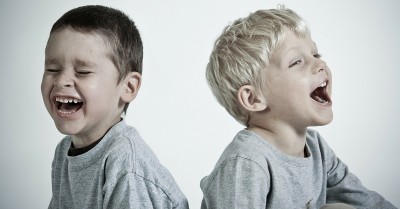As Educators, there will be many instances where you will need to write about a child's behaviour. For a behaviour management plan, assessments, half-yearly or yearly reports and more. The following lists descriptive words and their meaning that can be used to describe a child's behaviour.
Task-Oriented Behavior
- Active: always busy with something
- Ambitious: strongly wants to succeed
- Cautious: being very careful
- Conscientious: taking time to do things right
- Creative: someone who can make up things easily or think of new things
- Curious: always wanting to know things
- Logical: using clear and sound reasoning
- Organized: dealing with one's affairs efficiently
- Perfectionist: wants everything to be done right and perfectly
- Precise: careful and with great attention to detail
Task-Oriented Behaviour With Negative Connotation Include:
- Anxious: worried, uneasy, or nervous
- Careless: not being careful; rushing into things
- Impatient: quickly irritated and easily provoked
- Lazy: unwilling to work or showing a lack of effort
- Rigid: being unwilling to change one's outlook, belief, or response
- Scatterbrained: inattentive and forgetful
- Slapdash: performing work quickly and carelessly
- Sober: serious, sensible, or solemn
- Undisciplined: lacking in discipline
- Volatile: changing moods very quickly
Positive Relationship-Oriented Behaviours May Be Described As:
- Altruistic: shows selfless concern for others
- Caring: desires to help people
- Compassionate: feels or shows sympathy or concern for others
- Considerate: thinks of others
- Faithful: being loyal
- Impartial: treats all persons equally; fair and just
- Kind: thoughtful, caring
- Pleasant: polite
- Polite: exhibiting good manners
- Sincere: being totally honest
Negative Relationship-Oriented Behaviours May Be Described As:
- Aggressive: verbally or physically threatening
- Argumentative: often arguing with people
- Bossy: always telling people what to do
- Deceitful: doing or saying anything to get people to do what you want or to get what you want
- Domineering: constantly trying to control others
- Flaky: unstable and unreliable
- Inconsiderate: not caring about others or their feelings
- Manipulative: always trying to influences other people
- Rude: treating people badly; breaking social rules
- Spiteful: seeking revenge; hurting others because you didn't get what you want
Words That Describe Introverted Behaviour include:
- Guarded: cautious and reserved
- Loner: preferring not to socialize with others
- Maverick: unorthodox or independent
- Reflective: engaged in deep thought
- Reticent: not revealing one's thoughts easily
- Retiring: shy and fond of being alone
- Reserved: keeps thoughts and feelings to himself
- Self-aware: possessing in-depth knowledge of one's thoughts and feelings
- Sensitive: quick to detect or respond to slight changes, signals, or influences.
- Shy: quiet and reserved; lacking in confidence
Words That Describe Extroverted Behaviour Include:
- Affable: friendly, good-natured, and easy to talk to
- Amiable: displays a friendly or pleasant manner
- Assertive: confident and forceful
- Authoritative: commanding and self-confident; someone who is likely to be respected or obeyed
- Charismatic: shows a compelling charm that inspires devotion in others
- Enthusiastic: showing intense excitement, interest, or approval
- Gregarious: fond of company, sociable
- Persuasive: able to convince others to do or believe something
- Self-assured: confident in one's character
- Talkative: fond of making conversation with others
When writing about a child's behaviour it is important that it is done so respectfully and positively. Examples should be given to provide an overall sense of the child's behaviour when describing it.
For information on how to talk to parents about their child's behaviour: Talking To Parents About Their Child's Behaviour Issues
For information on developing a behaviour management plan: Behaviour Management Plans In Childcare
Reference:
List of Words that Describe Behavior, Your Dictionary
